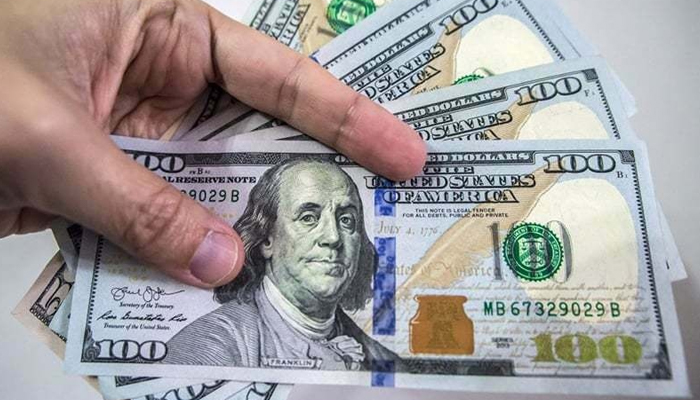SBP rubbishes claims of $3bn loss due to dollar cap
Remittances primarily fell due to global economic slowdown, claims SBP
The dollar cap, which was earlier imposed to stabilise the rupee's rate against the greenback, did not result in losses worth $3 billion to the national kitty, the State Bank of Pakistan (SBP) said Sunday.
To end the dollar crunch in the market, meet the International Monetary Fund's (IMF) conditions, and eliminate black currency markets, the government removed the cap last week — a move that sent the rupee down in the dumps in the last two sessions.
The local currency's performance was poor as it plunged from 230.15 to 262.60 against the US dollar in the interbank market following two days (Thursday-Friday) of devaluation. Cumulatively, the value of the rupee against the greenback decreased by Rs32 or 14%.
Financial pundits, including former finance ministers Miftah Ismail and Dr Hafeez Pasha, had claimed that the dollar cap had cost the national kitty losses between $1-$3 billion as people preferred illegitimate channels to transfer money home, which provided a better rate compared to the official channels.
Terming the reports of the losses as "incorrect", the central bank noted that numerous factors were behind the fall in Pakistan's exports and workers' remittances.
The export of goods has been facing headwinds due to moderating demand in international markets as most of our major trading partners are going through a period of monetary tightening, the bank said.
For instance, the bank said, the US Federal Funds rate has surged from 0.25% in March 2022 to 4.5% to date, suggesting a noticeable global monetary tightening.
Meanwhile, inflation, it said, has been significantly higher in the developed world, eating into the purchasing power of consumers.
"These, together with domestic factors like devastating floods and ensuing supply disruptions, have negatively impacted exports. In this backdrop, linking a decline in exports to a relatively stable exchange rate is not appropriate."
The bank noted that workers’ remittances were gradually tapering off from an all-time high level of $3.1 billion achieved in April 2022 due to Eid-related flows.
This decline, it said, is primarily attributed to a global economic slowdown as higher inflation in developed countries has led to a higher cost of living abroad, thus reducing the surplus funds that could be sent back to the homeland as remittances.
"Moreover, with the resumption of international travel post-COVID, some remittances have switched back to FCY cash transfers via overseas Pakistanis travelling to Pakistan."
-
Global memory chip crunch puts spotlight on Apple; Will iPhone become more pricey?
-
Bitcoin plummets toward $60,000 as investors dump risky bets
-
Bitcoin crashes below $63K as regulatory pressure and market fears grow
-
Bitwise Crypto Industry innovators ETF: What investors should do in 2026?
-
Nintendo shares slide again as momentum fears grow
-
Gold, silver prices fallen sharply; What’s driving the drop?
-
Gold’s record climb: Experts question if its safety is ‘overstated’
-
Dubai unveils plans to construct street built with real gold












